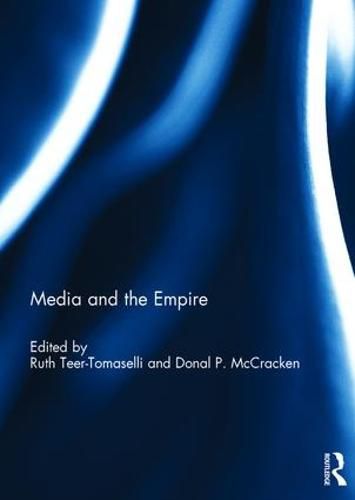Readings Newsletter
Become a Readings Member to make your shopping experience even easier.
Sign in or sign up for free!
You’re not far away from qualifying for FREE standard shipping within Australia
You’ve qualified for FREE standard shipping within Australia
The cart is loading…






This volume on print and broadcast media in the 19th and 20th centuries highlights the pivotal role that the media played in the establishment and maintenance of imperial power. The media bolstered both the ideological and financial objectives of the empire in a myriad of overt, covert, and downright scandalous ways.
From jeopardising the introduction of wireless telegraphy in order to maximise the financial gains of the investors of under-sea cabling, to newspaper proprietors cashing in on the thrilling, wonderful (and sometimes fabricated) adventures of war correspondents in exotic lands, the media has had a constant background influence in the public’s perception of empire.
By covering diverse topics from Anthony Lejeune’s radio talk-show ‘London Letters’ - which supported the Allies by boosting morale and providing a link between soldiers fighting abroad and their families during both World Wars, to the complete subversion of imperial influence - as in the case of the proliferation of diverse media platforms being used by migrant communities in Britain as a means to promote ‘colonization in reverse’, the book hints at the politics, suspense, and intrigue of both the print and broadcast sectors. This book was originally published as a special issue of Critical Arts.
$9.00 standard shipping within Australia
FREE standard shipping within Australia for orders over $100.00
Express & International shipping calculated at checkout
This volume on print and broadcast media in the 19th and 20th centuries highlights the pivotal role that the media played in the establishment and maintenance of imperial power. The media bolstered both the ideological and financial objectives of the empire in a myriad of overt, covert, and downright scandalous ways.
From jeopardising the introduction of wireless telegraphy in order to maximise the financial gains of the investors of under-sea cabling, to newspaper proprietors cashing in on the thrilling, wonderful (and sometimes fabricated) adventures of war correspondents in exotic lands, the media has had a constant background influence in the public’s perception of empire.
By covering diverse topics from Anthony Lejeune’s radio talk-show ‘London Letters’ - which supported the Allies by boosting morale and providing a link between soldiers fighting abroad and their families during both World Wars, to the complete subversion of imperial influence - as in the case of the proliferation of diverse media platforms being used by migrant communities in Britain as a means to promote ‘colonization in reverse’, the book hints at the politics, suspense, and intrigue of both the print and broadcast sectors. This book was originally published as a special issue of Critical Arts.